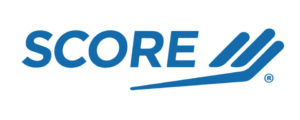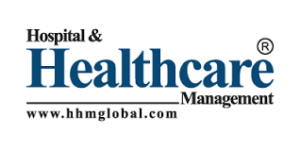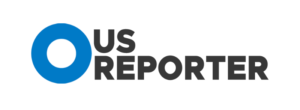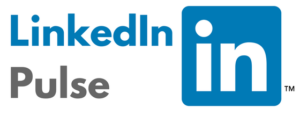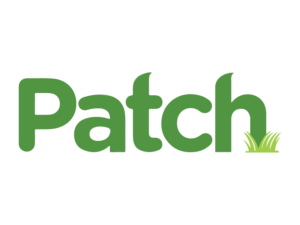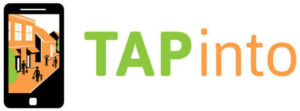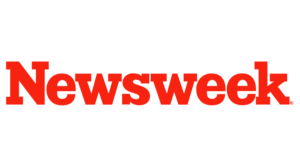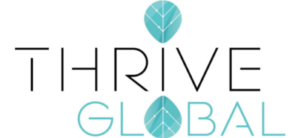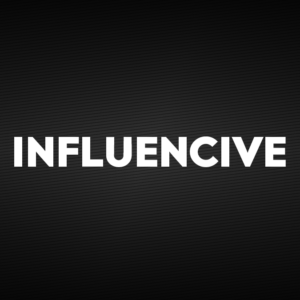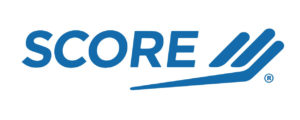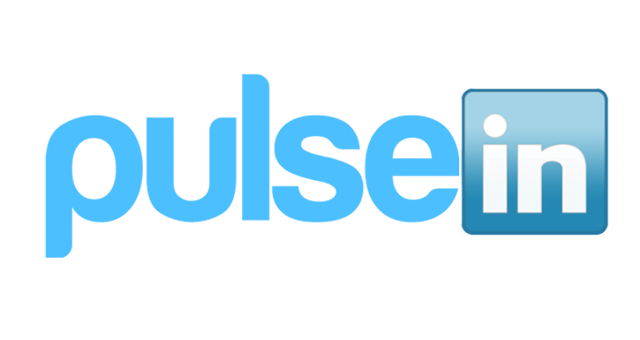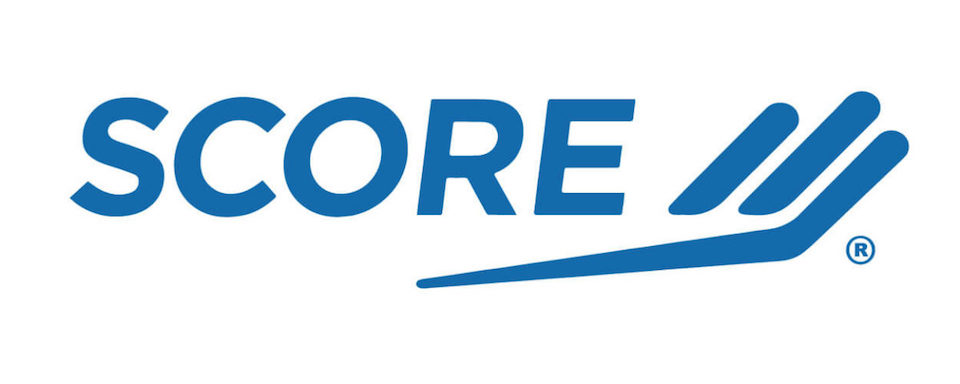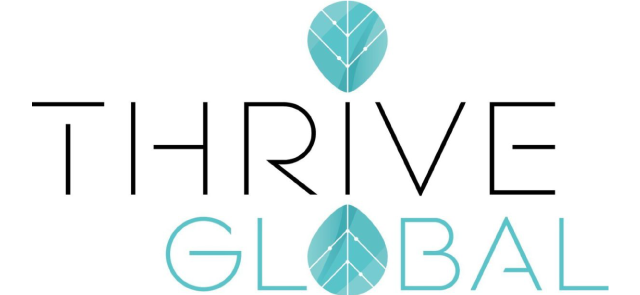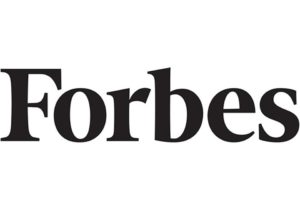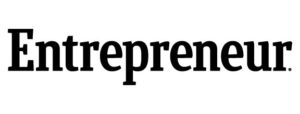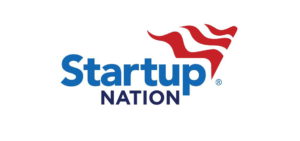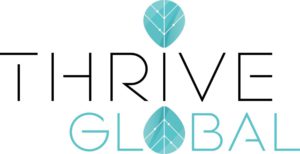JOEL LANDAU PRESS
A highly dynamic business leader, Joel Landau has a proven success record in creating companies that improve health care delivery and insurance processes for health plans, their members, and medical providers servicing communities. Joel Landau is also an accomplished thought leader in the press. His articles tackle the complex issues of healthcare, entrepreneurship, and caring for the aging population. His articles have been featured in publications such as CNBC, Forbes, Entrepreneur, Score, Thrive Global, AlleyWatch, Startup Nation, and Patch.
Published Press
Provider, April 25, 2024
Achieving Cyber-Resilience in Today’s Digital World
In our modern era, enhancing customer service to better align with your residents’ and families’ needs is paramount. Swiftly adapting to the ever-changing markets and consumers’ dynamic behaviors is equally crucial. Prioritizing innovation not only ensures you outpace your competitors but also solidifies your position at the industry’s forefront.
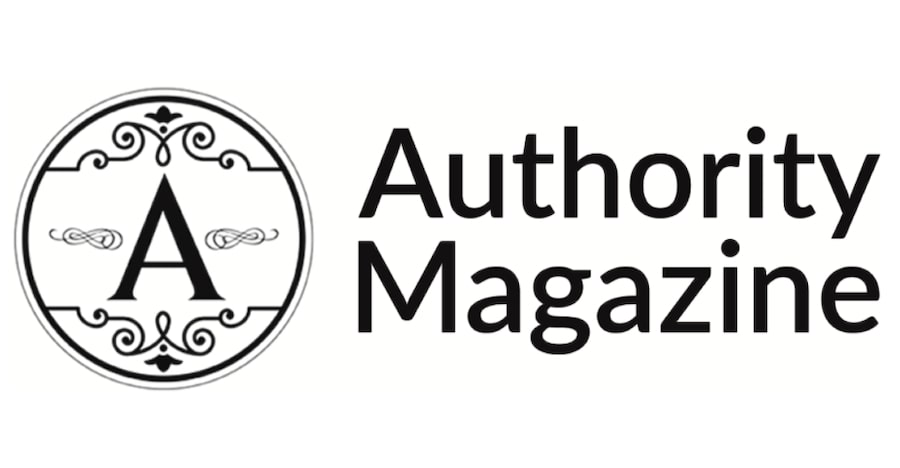
Authority Magazine, April 17, 2024
Quiet Committing: Joel Landau Of The Allure Group On The Five Commitments High Impact Leaders Make & Keep To Themselves Daily
Quiet quitting is the emerging phenomenon of employee disengagement, essentially quitting on the job. What strategies do high-impact leaders deploy to motivate themselves and those around them to move from quiet quitting to quiet committing? Because, at its core, there is no change without commitment. Commitment to change ideas.
Healthcare Business Today, March 20, 2024
How Telepsychiatry Can Pave The Way For Enhanced Telemedicine
One of the few positive things brought about by the COVID-19 pandemic has been the acceptance of telemedicine by both healthcare providers and patients. Telemedicine, or telehealth, is defined as the process of providing healthcare from a distance through technology like videoconferencing, patient portals, and remote monitoring of patients’ vital signs and other data.
Medium, February 24, 2024
Telehealth Is Here to Stay. How Can Facilities Make It Better?
In recent years, one innovative technology has emerged as a transformative tool: Telehealth. Once viewed as a promising development, telehealth has rapidly become an essential component of the healthcare and senior care sectors. Its significance and necessity were highlighted during the COVID-19 pandemic. While some speculated that telehealth might be a fleeting trend, it’s evident that it will continue to influence the senior care industry for the foreseeable future.
Healthcare Business Today, December 22, 2023
How Skilled Nursing Facilities Adapt To Innovate Tech Expectations
Skilled nursing facilities (SNFs) and other long-term care (LTC) centers are at a pivotal point where tradition meets innovation. Embracing modern digital tools is no longer optional but a crucial step to meet the growing demands of a rapidly evolving healthcare landscape, improve resident care, and enhance operational efficiency.
The foundational pillars of the care sector are being profoundly redefined, driven by the need for the essential integration of modern digital tools. This shift goes beyond mere adaptation; it reflects a deep-seated responsibility to maintain the highest resident care standards while optimizing operational efficiencies.
Provider, September 19, 2023
How to Improve Nursing Culture With Advanced Health Care Technologies
The nursing shortage not only continues to place significant strain on health care facilities globally, but it also consistently presents some of the most prominent challenges impacting the patient care journey.
While addressing the nursing shortage remains a priority for organizations across the senior care industry, it is equally crucial to explore how advanced health care technologies can revolutionize nursing culture, creating a transformative and empowering environment for nurses. When health care executives embrace these innovative technologies, they can unlock opportunities to enhance workflow efficiency, promote evidence-based practice, and foster a collaborative and patient-centric nursing culture, among other progress.
HIT Consultant, November 15, 2023
Game-Based Technology Keeps Seniors Happier and Healthier
If I told you to picture a gamer, what comes to mind? Likely a teenager or young adult sitting at a desk in their game room, which is outfitted with a multitude of monitors, gaming consoles, and other gadgets. The last image that would probably come to mind is that of a 70-year-old woman wearing a virtual reality headset and playing an interactive game. But you’d be surprised to learn that this is just as much of an accurate depiction of a “gamer” as the first example.
SCORE October 22, 2023
Learn From Your Competition, But NEVER Copy Them
Innovation remains the cornerstone of business triumph. Entrepreneurs and driven leaders persistently pursue excellence to nurture their enterprises and vie for distinction within their sectors.
Savvy leaders comprehend that glancing beyond their own fences often yields invaluable insights, aiding their navigation of the intricate business terrain. This approach gives rise to a nuanced art: one that involves extracting lessons from competitors while steadfastly upholding originality.
Healthcare Business Today, September 29, 2023
Can Tech Help To Slow The Nursing Exodus?
The COVID-19 pandemic took a huge toll on front-line workers, especially those in the healthcare field. Nurses in particular felt the effects of heavy workloads, long hours, and pandemic-related stress, all of which have pushed more and more of them to leave the profession. A recent study by the International Council of Nurses (CN) reported that 20 percent of its National Nurses Associations (NNAs) saw an increased departure rate in 2020, compounding a global nursing shortage that had already plagued the profession before the outbreak.
Provider, September 19, 2023
How to Improve Nursing Culture With Advanced Health Care Technologies
The nursing shortage not only continues to place significant strain on health care facilities globally, but it also consistently presents some of the most prominent challenges impacting the patient care journey.
While addressing the nursing shortage remains a priority for organizations across the senior care industry, it is equally crucial to explore how advanced health care technologies can revolutionize nursing culture, creating a transformative and empowering environment for nurses.
Provider, September 19, 2023
How to Improve Nursing Culture With Advanced Health Care Technologies
The nursing shortage not only continues to place significant strain on health care facilities globally, but it also consistently presents some of the most prominent challenges impacting the patient care journey.
While addressing the nursing shortage remains a priority for organizations across the senior care industry, it is equally crucial to explore how advanced health care technologies can revolutionize nursing culture, creating a transformative and empowering environment for nurses.
Healthcare Business Today, August 30, 2023
Healthcare Leadership: How To Meet The Challenges Of The New Normal
Healthcare executives have faced numerous challenges induced by the pandemic. Although the crisis is ongoing, the panicked emergency that pervaded two or three years ago has slowly transformed into a new normal. As anxiety levels continue to decrease, healthcare leaders may be inclined to believe that the worst is over and that the remainder of the 2020s will be less turbulent than the preceding years.
CEO Weekly, August 28, 2023
When Adopting New Technology, Joel Landau Believes This Is How Health Execs Should Be Collaborating
The integration of cutting-edge technology in healthcare and senior care facilities has become a crucial factor in driving innovation and enhancing patient care.
While acquiring state-of-the-art tools is important, Joel Landau, the founder and chairman of The Allure Group, emphasizes that successful implementation requires unified effort and genuine collaboration among healthcare leaders within an organization. At The Allure Group, elderly patients have access to the latest health technologies, which is credited to Landau’s ability to collaborate effectively with other healthcare executives.
HIT Consultant, August 7, 2023
How Can Nursing Homes’ Data Problem Be Solved?
Nursing homes have embraced technology, especially during the COVID-19 pandemic, to help seniors, staff, and clinicians better communicate with one another and for residents to stay in touch with loved ones. The use of electronic health records (EHRs) has saved long-term care providers both time and money.
Medium, July 22, 2023
Joel Landau of The Allure Group: Five Things I Wish Someone Told Me Before I Became A CEO
Decision-Making Holds a Lot of Weight. The responsibility and impact of your choices can be overwhelming at times. With every decision you make, you can have a direct impact on the success of your organization, on your employees, on your stakeholders, and, like me, on the older adults you care for. You aren’t always going to make everyone happy, and that’s just the reality of leadership. As long as your intentions are good, you will make good decisions that will positively enhance your company.
McKnights, July 17, 2023
Why healthcare cybersecurity should be a top priority
In the healthcare sector, cybersecurity has quickly emerged as the most significant vulnerability.
Skilled nursing facilities and other long-term care centers are especially vulnerable to cyberattacks as cybercriminals attempt to gain access to resident and employee data to use in larger identity theft and fraud schemes.
SCORE, June 27, 2023
Are You Listening to Employees? Or Do You Just Hear Them?
Picture this: a bustling office, the hum of productivity, and employees voicing their ideas and concerns. Now, ask yourself, is this a workplace led by an executive with a closed-door policy or someone who is actively present in the office?
Kivo Daily, June 26, 2023
Robotics and Tech for Short-Term Rehab? Allure Group Founder Joel Landau Believes These Advancements Are Making the Biggest Impact
In recent years, remarkable advancements in healthcare have been witnessed in the field of robotics and technology. These digital innovations have played a crucial role in transforming the way patients recover and regain their mobility, particularly in short-term rehabilitation.
Medium, June 23, 2023
Wearables: The Possibilities and Potential Pitfalls
From Apple watches to the Fitbit, wearables — electronic devices that are worn on the body — have become a popular way for people to track their daily step count, heart rate, workouts, and even sleep patterns. Additionally, some of these devices are capable of reading notifications, texting, making phone calls, and more. Wearables are extremely popular and are of particular usefulness for monitoring chronic health conditions. Medical wearables not only allow patients to monitor their health and vital signs, but wearable technology in the healthcare arena also offers a variety of benefits as well as some concerns.
CEO Weekly, June 7, 2023
Leaders Need to Have a Clear Vision for AI, and Allure Group’s Joel Landau Believes This Is How They Can Achieve It
Artificial intelligence (AI) is an essential tool for businesses across industries. In this article, we explore the insights shared by Joel Landau, the founder and chairman of The Allure Group, on successfully implementing AI into businesses.
Medium, June 5, 2023
Facing the Challenge Presented by Inflation: Businesses, It’s OK to Make Plans Again (We Think)
Many businesses have had to fly by the seat of their pants to some degree in recent years, while the pandemic has wreaked havoc with plans and made agility paramount. Now, with the worst of COVID-19 apparently behind us, it is time to not only solidify strategies but attempt to build momentum in the face of the challenge inflation presents.
Provider Magazine, May 30, 2023
Human Touch and Health Care Technology Work Best Together
Although popular at the beginning of the twentieth century, the practice of doctors making house calls largely ceased by the 1970s. But now, medical professionals are once again appearing in our living rooms for routine check-ups, outpatient care, and to answer pressing health concerns. This is the result of telehealth solutions: apps and secure video platforms built to connect patients to providers from the comfort of their own homes.
Disrupt, May 22, 2023
How to Roll Your Sleeves Up and Become a Hands-On Leader: Insight From Allure Group’s Joel Landau
How many articles have you read about detached leaders inspiring high-achieving teams that work together to create successful companies? Not many. Because disinterested business leaders don’t establish innovative organizations that set the gold standard for their industries.
Medium, May 6, 2023
How FHIR Can Take Interoperability to New Heights
Communication is essential within the medical field. Whether relaying the correct dosage of a life-saving medication or receiving a patient’s allergy list, shareable information is the foundation of a safe and efficient healthcare system.
In the digital age, one might assume access to critical information is as simple as searching a patient’s name. However, several barriers impede data exchange between organizations, including a lack of time and resources to convert existing records, privacy concerns, and “paper chart holdouts” — medical professionals who refuse to use electronic records. As a result, interoperability between hospitals, pharmacies, private practices, and consumer-oriented medical companies suffer.
HIT Consultant, May 4, 2023
The Importance of Decoding Health Data to Every Organization
To the observant onlooker, data is everywhere. From spending habits to hospital visits, humans are walking treasure troves of information. As technology has exponentially improved in the last 20 years, so has the collection of data. In 2010, a mere two zettabytes of data were created, captured, copied, or consumed. In 2020, estimates put that number at 79 zettabytes.
Medium, May 2, 2023
Why Fostering Collaboration is Essential in the Workplace
If the last two years have taught business leaders anything, it is that a flexible, hybrid workplace demands a collaborative environment across the entire organization. With some employees working remotely and relying on technology like Zoom, Skype, and Slack to communicate — or coming in to work just a few days a week — team members need to feel acknowledged and appreciated. Collaboration fosters innovation, creativity, and encourages workers to unite to meet common goals, even when they’re not all in the same location. With a hybrid workforce, organizations must focus on keeping employees happy.
Medium, May 1, 2023
The Continuing Challenge of Data Interoperability
There is some expectation that healthcare interoperability may yet become a reality in the very near future. The legislative foundation was laid in 2019, the process has likely been accelerated during the pandemic and the benefits to the sector are obvious. That said, there are still major hurdles to overcome.
Physicians Practice, April 26, 2023
Is healthtech destined to follow the same path as fintech?
The emphasis in the healthcare sector continues to be on greater efficiency and cost-effectiveness, and as a result innovation is ongoing. Accelerated by the pandemic and further hastened by changing demographics and staffing needs, that trend is reflected most dramatically in the rise of healthtech, which the World Health Organization has defined as “the application of organized knowledge and skills in the form of devices, medicines, vaccines, procedures, and systems developed to solve a health problem and improve quality of lives.”
Healthcare Business Today, April 21, 2023
Architecture Can Impact Care Outcomes: Why It’s Time To Redesign Senior Care Facilities
As the world’s population continues to age, the need for high-quality senior care facilities has become increasingly pressing. Unfortunately, many current facilities fall short in providing the best care possible, with outdated designs that fail to consider residents’ needs.
The architecture of senior care facilities can have a significant impact on the physical, mental, and emotional health of residents. Here’s how building design can affect care outcomes, and why it’s time to redesign senior care facilities.
Healthcare Business Today, April 21, 2023
The OTHER Pandemic, And How To Deal With It
One of the many unfortunate offshoots of the pandemic has been the mental health crisis it unleashed. The Centers for Disease Control and Prevention indicates that self-reported symptoms of depression and anxiety more than tripled among U.S. adults in the early months of the pandemic, an increase that according to one study was more dramatic than that resulting from other large-scale traumatic events, such as Hurricane Ida and the Ebola outbreak.
Medium, April 20, 2023
Five Essential Communication Skills That Leaders Must Grasp
The American workplace has been changed by the pandemic, dramatically and permanently. Remote work, first undertaken for safety reasons, is now an everyday reality. While it has provided flexibility and freedom for the workforce, it has presented challenges to leaders.
Physicians Practice, April 13, 2023
A new trend in virtual care: Provider collaboration
As we move into the third year of the pandemic, virtual care, or telehealth, has become a common way for healthcare providers to diagnose, treat, and communicate with patients. Healthcare systems in the future will need to deliver more accessible care. Collaborative and team-based care are interchangeable terms that define a scenario where patient-care coordination is utilized across different specializations and healthcare settings.
Medium, April 11, 2023
How Business Leaders Can Engage a Remote Workforce
“Remote” has become a very important word during the pandemic. Telemedicine platforms are also far more widely used for remote care than was the case before COVID-19, and that usage is expected to continue once the pandemic subsides. But by far the most common usage of the word “remote” is as it pertains to the workforce in various professions.
Kivo Daily, March 28, 2023
Joel Landau, Business leaders understand that time is their most precious resource.
With ever-increasing schedules, there is a constant demand for their attention, including completing tasks, attending meetings, and achieving productivity goals. However, with only so many hours in a day, some leaders may sacrifice their work-life balance. Instead, leaders need to learn how to optimize their schedules to make the most of their time.
Joel Landau, the founder of The Allure Group, follows specific strategies to increase his productivity. In the following sections, he shares his tips, hoping that other leaders can also make the most of their time.
Provider Magazine, March 16, 2023
New Methods for Diagnosing Mild Cognitive Impairment
Mild cognitive impairment (MCI) is an illness that impacts 20 percent of seniors worldwide but is difficult to detect—so much so that only recently was it clinically defined. Frequently dismissed as the sort of memory loss that impacts many people aged 65 and above, MCI leads to Alzheimer’s disease 30 to 50 percent of the time a patient is diagnosed with the disorder.
There are actually two types of MCI: amnestic (which manifests itself as memory problems) and non-amnestic (which results in issues with attention, concentration, decision-making, planning, etc.). A patient could also experience deficits in several areas, known as multi-domain MCI, or just one, known as single-domain MCI.
Healthcare Business Today, March 14, 2023
How Genetic Testing Can Lead To Improved Outcomes
The proliferation of genetic testing in the 21st Century is possible thanks to breakthrough discoveries and an overwhelming interest in ancestry, supported by Ancestry.com and 23andMe. But the success of these companies has highlighted another use for personalized genetic testing: improving healthcare.
New understandings of the way an individual’s genetic makeup affects their health and the development of therapies to target specific genes are transforming the medical field. Genetics, which has come a long way since scientists determined the double-helix nature of DNA in the 1950s, can now lead to better outcomes for patients and healthcare providers alike.
Physicians Practice, March 2, 2023
What the pandemic has taught us about the healthcare supply chain
Reports in September 2021 of dozens of cargo ships anchored off the coast of California, unable to deliver their goods to the Port of Los Angeles and Port of Long Beach, again underscored the fragility of supply chains.
Indeed it has been an issue throughout the pandemic, but it took a turn for the worse when COVID-19 variants emerged and workers were found to be in short supply at these ports, at least in part out of fear of infection. So the ships continued to bob in the Pacific Ocean, and industries continued to be without vital supplies.
Healthcare Business Today, February 24, 2023
How Healthcare Organizations Can Aid Decarbonization
It goes without saying that those in the healthcare industry are acutely aware of the impact climate change is having on humankind. A statement issued by the National Academy of Medicine (NAM) in December 2021 cited a study showing that over five million people died because of temperature extremes between 2010 and 2019, and noted the manner in which greenhouse-gas emissions “cause or exacerbate myriad health problems associated with air pollution, severe weather, wildfires, extreme temperatures, changes in vector ecology, and disturbances in the food supply, among other stressors.”
New York Wire, February 15, 2023
The Impact of AI on Healthcare, According to Allure Group’s Founder Joel Landau
Artificial Intelligence and machine learning are expected to continue to shape the healthcare industry in a variety of ways, including predictive modeling, diagnoses, patient experience, and drug discovery. This is especially crucial as the aging US population and a projected shortage of doctors are putting immense pressure on the healthcare system.
Senior Lifestyle Magazine, February 13, 2023
When Evaluating Skilled Nursing Facilities, it Never Hurts to Ask
While the coronavirus pandemic has led many seniors, in concert with their loved ones, to reassess their long-term care needs, the pendulum seems certain to swing back toward skilled nursing facilities, for two reasons.
First, the development of vaccines — and their administration to the high-risk populations in SNFs — is quickly making such facilities a safer, more appealing option for those in need.
Hospital & Healthcare Management, January 24, 2023
Why Artificial Intelligence Will Play a Vital Role in ‘Work of the Future’
The pandemic has pushed many businesses to “the most important pivot point of the past couple years,” as Dannielle Appelhans, COO of the Massachusetts-based biopharmaceutical firm Rubius Therapeutics, said in a piece on the MIT Sloan website. Appelhans added that there now appears to be “a path to move forward into what will be our new normal, or our ‘work of the future.’”
US Reporter, January 23, 2023
Revolutionizing Healthcare: AI’s Role in Reducing Clinician Burnout and Improving Patient Outcomes
As the founder and chairman of The Allure Group, a network of six New York City-based nursing homes, Joel Landau has seen firsthand the impact that the COVID-19 pandemic has had on healthcare professionals. Despite the challenges, Landau and his leadership team have remained committed to using cutting-edge technology to improve the lives of both residents and staff.
New York Wire, December 14, 2022
Allure Group Founder Joel Landau Launches Gamification Platform RESTORE-Skills
In keeping with his long-standing commitment to employ cutting-edge technology, Joel Landau, founder and chairman of The Allure Group, earlier this year greenlighted the installation of the computer-based gamification platform RESTORE-Skills at two of the six nursing homes in Allure’s New York City-based network.
New York Wire, November 21, 2022
Healthcare Expert Joel Landau Transforms the Elderly Healthcare Industry with The Allure Group
Growing older is a thing of immense joy, and older members of society often need a place where they can safely socialize and make friends with members of the same community within the same age range. However, despite the growing aging population, the senior healthcare industry remains underdeveloped due to a lack of the necessary financial knowledge. To change the narrative, healthcare expert Joel Landau is taking the lead in renovating the complex healthcare industry and providing quality healthcare services for the elderly.
Healthcare Business Today, November 15, 2022
How Robots are Helping Curtail Senior Isolation
On episode 737 of the popular podcast This American Life from WBZ in Chicago, Cecilia Brown chronicled the poignant but sad story of her grandmother, Dee Brown, who lived in assisted living when the coronavirus pandemic hit.
She says at the beginning of the podcast, which is a collection of recorded phone calls with her grandmother, “Dee had dementia, but it was pretty mild. She’d forget small things like where I lived, tell me stories she told me before. But she was still pretty with it.”
Seniors Lifestyle Magazine, November 15, 2022
Straddling the Gap Between Institutional and At-Home Care for Seniors
One of the most significant trends in healthcare in recent years has been the expansion of personalized medicine and concierge services. This is especially true for older Americans, who, impacted by the COVID-19 pandemic, have taken advantage of remote care—telemedicine, remote chronic condition monitoring, etc.—and are becoming more familiar with using technology at home. While many seniors are comfortable entering skilled nursing facilities (SNFs), more and more prefer to remain in their homes as long as possible.
Linkedin Pulse, October 3, 2022
The State of Corporate Culture, Post-Pandemic: Why Work is Forever Changed
If there was a hope during the height of the pandemic that the American workplace would someday get back to normal, that soon changed. It gave way to the realization that things would never quite be the same, that in fact we have moved on to a new normal. As Ragu Bhargava, CEO at Global Upside, a global expansion technology and services company, told Forbes in February 2022, the crisis “revolutionized the workplace” and “served as a massive wake-up call.”
Patch, August 15, 2022
Nursing Home Leader Holds Favorable View of AI-Enhanced EHR
Technology has become increasingly prominent across all types of healthcare facilities in recent years. This increase has helped meet the challenges of today, whether they are related to the pandemic or shortages in healthcare staffing.
Tapinto.net, August 2, 2022
Founder and Chairman Shares Why Leaders Should Revamp Their Skills
The pandemic has offered further evidence that agility is crucial for business leaders, that those atop the org chart must constantly adapt to changing circumstances. Whether because of the pivot to remote work or the acceleration of companies’ digital transformation, reinvention became crucial.
Healthcare Business Today, July 9, 2022
The Challenge of Acute Staffing Shortages at Skilled Nursing Facilities
The coronavirus pandemic has had a profound impact on businesses—large and small—and among those most affected are nursing homes. Physicians, nurses, and other clinicians are leaving the field in increasing numbers, and skimpily staffed care facilities threaten both patients’ health and the industry’s future. Staffing shortages at long-term care facilities can lead to lower patient-provider ratios, high rates of medical error, and provider burnout. >>Read More.
Healthcare IT Today, June 3rd, 2022
The Challenges of Reducing Clinicians’ Administrative Burdens
Sadly, most of us realize now that the promise of a “paperless society” is unlikely to become a reality. Despite technology’s ability to eliminate some of the more tedious tasks like filling out endless insurance forms, and paying bills, paperwork still exists. And even though more and more information is shared online, completing such forms is time-consuming as well, and can sometimes actually create more work. >>Read More.
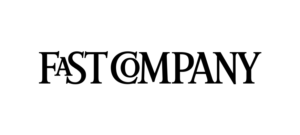
Fast Company, May 12nd, 2022
How AI can increase healthcare organizations’ efficiency and reduce burnout
Burnout has become an unfortunate everyday reality for healthcare professionals. It’s one that preceded the pandemic, but has also been exacerbated by the crisis. Sadly, there is plenty of anecdotal evidence of clinicians being overwhelmed by their responsibilities since the outbreak began, and statistics reflect the extent of the problem.
Business Journal, May 12nd, 2022
What’s Next for Telehealth
During the worst of the Covid-19 pandemic, doctors, nurses and other healthcare workers were stretched thin; in some hospitals, there weren’t enough clinicians to keep up with the never-ending influx of critically ill patients. While things have eased up a bit as more and more people are getting vaccinated, lessons have been learned that can be applied not only now, but in the years ahead. >>Read More.
Healthcare Business Today, May 2nd, 2022
What’s Next for Telehealth
Just as many of us began working from home at the beginning of the COVID-19 pandemic, a significant number of people also nixed in-person doctors’ appointments in favor of telehealth consultations with their physicians. While virtual care was originally conceived as a low-cost means to avoid expensive emergency room or urgent care visits for basic ailments such as colds, flu, and rashes, during the COVID-19 shutdown, doctors began using telehealth to see patients remotely for a variety of conditions. >>Read More.
Newsweek, April 29th, 2022
How One Retailer Is Redefining Healthcare
An increasing number of Americans are medically underserved, living nowhere near adequate healthcare providers or facilities.
It is estimated that most Americans live within 15 minutes of a Walmart, however.
These two facts led the retail giant to enter the healthcare space, as in 2019 it opened its first clinic, in Dallas, Georgia. The success of that facility, which offered affordable services like $40 medical check-ups and mental health counseling for $1 a minute, resulted in an expansion of locations and offerings. >>Read More.
Business Journal, April 12th, 2022
Where gaming and medicine collide: How AR and VR are influencing health care education
Games with a medical focus have come a long way since Hasbro launched Operation in 1965. Even the virtual frog dissections that delight squeamish high schoolers pale in comparison to recent advances in interactive programs aimed at improving health care skills.
Like the tweezers necessary to remove plastic ailments from “Cavity Sam,” contemporary technology like virtual reality (VR) and augmented reality (AR) can be used to help medical students perform complex surgeries, strengthen interpersonal communication and commit anatomy lessons to memory. >>Read More.
Healthcare Business Today, April 5th, 2022
Blockchain’s growing impact on healthcare
One of the many questions raised by the coronavirus pandemic has centered on whether nursing-home design has contributed to the spread of the virus and whether a redesign of such facilities might provide a healthier environment.
After all, these facilities typically have long, open hallways, not to mention rooms that house multiple residents, as well as large dining rooms and other spaces where residents are free to mingle. In the best of times, that’s a great thing. During the height of the pandemic, that emerged as a cause for concern. >>Read More.

Fast Company, April 1st, 2022
Blockchain’s growing impact on healthcare
Back in 2016, author/inventor Richie Etwaru, an avowed futurist, predicted that blockchain would someday provide “an underlying fabric for healthcare.”
Etwaru, speaking at the New York Academy of Science, asserted that healthcare had been “underperforming as an industry,” and that blockchain would provide “massive acceleration within the sector” over the next 25 years.

Fast Company, February 28th, 2022
The pluses and minuses of AI in healthcare
It is expected that, in 2022, artificial intelligence (AI) and machine learning will continue to impact healthcare in a multitude of ways, not the least of which are predictive modeling, diagnoses, patient experience, and drug discovery. Indeed, this is a promising turn of events, given the aging U.S. population and the dearth of doctors that is expected in the years ahead.
Newsweek, February 28th, 2022
Health Care Organizations Must be Prepared for Cyberattacks
As the COVID-19 pandemic wanes, the threat of cybercriminals masterminding ransomware attacks on businesses is a growing concern, especially in the health care industry. Ransomware is malicious software — or malware — that encrypts files on a computer system, enabling a cyber thief to steal data. The attacker then demands ransom from the victim to restore access to the date upon payment. The costs can range from a few hundred dollars to thousands, usually payable in Bitcoin. >>Read More.
Newsweek, February 25th, 2022
How Healthcare Has Been Forever Changed by the Pandemic
The healthcare field has routinely prioritized innovation and advancement in order to better identify, treat and cure patient conditions. In the last year alone, healthcare has changed more than in any other period in modern history due to the pandemic and the challenges it presented. To accommodate and protect patients and providers alike, healthcare was forced to rapidly adapt and evolve, resulting in stark changes that will influence the field for years to come. >>Read More.
CEO World Magazine, February 3rd, 2022
How Leadership Will Evolve in 2022
One thing all great leaders have in common is that they are constantly learning to adapt to change. And with continuing uncertainty in the workplace brought about by the COVID-19 pandemic, today’s business leaders must be available, empathetic, and committed to offering their employees a chance to reflect on their sense of purpose and sense of inclusion at work. >>Read More.
The American Reporter, January 26, 2022
The COVID-19 Battle: An Individual Endeavor, Fought One Day at a Time
Every day throughout the pandemic, the headlines have screamed about thousands of cases, hospitalizations and, sadly, deaths. It is all a little overwhelming, all a little difficult to wrap one’s mind around.
The truth, however, is that the fight against COVID-19 is much smaller, much more relatable. It is won, one patient at a time, one vaccination at a time, and through the efforts of one healthcare hero at a time. It is an individual thing, a day-to-day thing.

Forbes, February 1st, 2022
Why A Leader Must Constantly Reinvent Oneself
The world has transformed as the Covid-19 pandemic has forced individuals and businesses alike to adapt to changing rules and restrictions. For corporate leaders, this means more than reconfiguring the workplace. To be able to pivot and keep pace with change, leaders must literally reinvent themselves.
Newsweek, January 25th, 2022
Is Data-Driven Decision-Making Always a Leader’s Best Course?
Companies making data-driven decisions tend to be 6% more profitable than their competition. With the creation of quintillions of bytes of new data each day, data-driven decision-making (DDDM) allows businesses to act on insights that can lead to greater profitability.
However, relying entirely on data is a questionable tack for a business leader. Rather, it is best to strike a balance between gut instinct and DDDM, thus preventing costly missteps. >>Read More.
Business Journals, January 21th, 2022
Big Tech’s incursion into healthcare: What does it all mean?
Technology is transforming the healthcare industry, whether through the use of wearable devices that allow healthcare providers to monitor patients’ conditions or the use of artificial intelligence (AI) and cloud platforms to provide healthcare companies with better data analytics. >>Read More.
Health Business Today, January 25th, 2022
How COVID-19 is Changing Infection-Control Measures in Skilled Nursing Facilities
Because they house a population that is at increased risk of contracting the coronavirus, skilled nursing facilities have been forced to closely monitor their infection-control procedures during the COVID-19 pandemic. Are they doing all they can? Is the approach consistent throughout each facility — or, as is the case with The Allure Group, which has six centers in its network — is it consistent from one building to the next? >>Read More.

Fast Company, January 14th, 2022
Why femtech is becoming increasingly prominent
All signs point to an uptick in “femtech,” the all-purpose term that is applied to technology dealing with women’s health. More money is being invested in the sector, more enterprises are emerging, and there is, finally, a greater awareness of women’s healthcare needs.

Forbes, December 22th, 2021
Innovative Ideas Can Often Be Found Beyond Your Business’s Doors
Business ideas are elusive and apt to simply appear out of thin air. Where a leader is concerned, it’s a matter of keeping your eyes open, observing the world around you and understanding how you can put your own personal stamp on things. >>Read More.
Healthcare Business Today, December 16th, 2021
Telemedicine, Remote Patient Monitoring are Here to Stay
Where telemedicine and remote patient monitoring are concerned, the future is now. If for years both were part of the long-term strategic vision at many healthcare facilities, they have become essential tools during the coronavirus pandemic.
From the earliest days of the outbreak, increased implementation of those technologies became the norm. They represented a safety measure, a method of adhering to social-distancing guidelines. They were also a work-around when governmental lockdowns were imposed on long-term-care facilities, and a means for hospitals to deal with a glut of patients. >>Read More.
Healthcare Business Today, December 12th, 2021
How Consumers’ Expectations Will Inform Healthcare in 2022
More than ever, the patient is in charge in the healthcare space. Just as shoppers expect a more personalized experience from retailers — that vendors, armed with technological tools, will be well aware of their tendencies and preferences — patients expect healthcare providers to understand their individual makeup and medical history, and tailor care accordingly. >>Read More.
Newsweek, December 9th, 2021
How Healthcare Technology Can (Believe it or Not) Humanize Medicine
On its face, it admittedly sounds incongruous: Healthcare technology can humanize medical care? But how? Wouldn’t the opposite be true? Wouldn’t tech’s incursion into this sector make medicine more impersonal? Wouldn’t the use of such things as telehealth platforms, which have become more prevalent during the pandemic, put more distance between the provider and patient than ever before? >>Read More.
Fast Company, December 2th, 2021
AI in healthcare: What comes next, and further down the line?
As in so many other industries, artificial intelligence (AI) represents the next step in eldercare. Whether through chatbots or care bots (i.e., companion robots), wearables or virtual assistants, AI is capable not only of collecting actionable data on seniors, but also interpreting it and predicting the best course in the care journey. As a result, workflows and outcomes are improved. >>Read More.
Forbes, November 24th, 2021
Why Metrics Only Tell Part Of The Tale Of Business Success
Metrics have a place in every industry, including healthcare, but context is crucial. No single metric will tell an organization’s tale; rather, it’s a matter of taking into consideration a wide array of data to get the most complete picture possible. The challenges, however, are choosing the right metrics and not fixating on one at the expense of the larger goal the company is seeking to achieve. >>Read More.
New York Business Journal, November 16th, 2021
Blockchain is making its presence felt in healthcare
The decision in June 2021 by Aetna, Anthem and Cleveland Clinic to partner on a new blockchain-based healthcare initiative represents just the latest signal of the potential impact the technology stands to make in the sector in the years ahead.
This venture, called Avaneer Health, is an offshoot of a 2019 collaboration involving Aetna, Anthem, PNC Bank, IBM and HCSC to form a blockchain-based healthcare network designed to eliminate inefficiencies in the space — like interoperability, the processing of claims and payments and the development and maintenance of provider directories. >>Read More.
PR Newswire, August 23, 2021
The Allure Group’s Harlem Center Partners with Salvation Army on Vaccination Event
The Harlem Center for Nursing and Rehabilitation, one of the New York City-based skilled nursing facilities that forms The Allure Group, partnered with the Salvation Army and the office of New York governor’s office to sponsor a coronavirus vaccination event in Harlem on July 29.
The day-long event, which was held at the Salvation Army Harlem Temple, saw the single-shot Johnson & Johnson dispensed. Each person who received the vaccination was also presented with a Megamillions lottery ticket.
Thrive Global, July 6th, 2021
How Joel Landau has led the Allure Group through the pandemic
While the human tragedy of the coronavirus pandemic should always be top of mind, let us focus for a moment on the economic upheaval resulting from this healthcare crisis. How businesses have been left in dire straits, or altered. How jobs have dried up, leaving lives in disarray. How the very definition of work has been rewritten. Where the pandemic was concerned, things weren’t very all right in the U.S. at that point, though the outlook has since brightened considerably. And throughout the crisis The Allure Group, under the leadership of chairman and founder Joel Landau, has endeavored to raise awareness, raise spirits and raise hopes. >>Read More.
Influencive, June 17th, 2021
How Joel Landau has led the Allure Group through the pandemic
In July 2020, a resident named Mrs. Tatyana was released from The Allure Group’s Hamilton Park Nursing and Rehabilitation Center, having recovered from a bout with COVID-19 that at one point left her on a respirator. As part of her Blue Carpet Farewell, a musician stood in the lobby of the facility, strumming a guitar and singing a rendition of an old Beatles song, “Here Comes the Sun,” which includes these lyrics: Little darling, the smiles returning to the faces Little darling, it feels like years since it’s been here Here comes the sun do, do, do Here comes the sun And I say it’s all right Where the pandemic was concerned, things weren’t very all right in the U.S. at that point, though the outlook has since brightened considerably. And throughout the crisis The Allure Group, under the leadership of chairman and founder Joel Landau, has endeavored to raise awareness, raise spirits and raise hopes. >>Read More.
Thrive Global, May 4, 2021
How Leaders Respond to Crises and What We Can Learn
The coronavirus pandemic has placed unique demands on business and healthcare leaders, pulling much of their attention away from growth towards controlling losses. This public health crisis has also changed what most of them understand about handling widespread and enduring emergencies. Moreover, they continue to face challenges with maintaining safety and supporting their employees and clients through changes in working conditions. >>Read More.
Healthcare Business Today, April 10, 2021
The Nursing Home in 2021: What Lies Ahead
Buffeted by the coronavirus pandemic and faced by an ongoing influx of Baby Boomers, skilled nursing facilities are quickly approaching their day of reckoning. Or, more likely, several of them. “I think that we’re moving into a decade of disruption, quite honestly,” Beth Mace, chief economist for the National Investment Center for Seniors Housing & Care (NIC), told the Senior Housing News webinar. >>Read More.
SCORE, March 10, 2021
Trends That Will Define the Business World in 2021
Even in the best of times, disruption is a fact of life in the business world. These are not, of course, the best of times. And while the coronavirus pandemic has led to even greater disruption, it has led to something else — opportunity. An opportunity for innovation. An opportunity for growth. Some 70 percent of executives believe that will be the case, according to McKinsey. In particular, they assert that COVID-19 will present opportunities for growth in the following sectors: technology, consumer packaged goods, pharmaceutical/medical supplies, financial services, retail, and healthcare systems/services. >>Read More.
McKnights Long Term Care News, February 22, 2021
Making the loneliness epidemic a mainstream problem, finally
With the coronavirus pandemic still raging this summer, a senior living facility in North Carolina began posting photos on its Facebook page, each showing a resident holding a sign that listed the person’s first name and hobbies. There was Linda, who likes art, music and reading. Pauline, who enjoys rabbits and the Bible. Alex, who appreciates guitars and old rock music. There were 20 photos in all. And displayed behind each of the residents was another sign: “Will You Be My Pen Pal?” It was yet another reminder of the depth and breadth of the COVID-19 crisis. >>Read More.
Tapinto.net, February 3, 2021
Vaccine Rollout Gathering Momentum, Especially at The Allure Group
New president Joe Biden has unveiled an ambitious plan to supercharge the rollout of the coronavirus vaccine, and among other things he wants to assure that it reaches those who need it most — notably healthcare workers, those with co-morbidities and those 65 and older. “It won’t mean that everyone in these groups will get vaccinated immediately, as supply is not where it needs to be,” his transition team wrote, according to CNBC. “But it will mean that as vaccines become available, they will reach more people who need them.” >>Read More.
McKnights Long Term Care News, January 25, 2021
How COVID-19 unmasked ageism
For every occasion, even a pandemic, there appears to be a hashtag. One used to describe the coronavirus was particularly vile, particularly cruel: #BoomerRemover. There is, tragically, some truth to it, as COVID-19 has shown itself to be especially deadly among those 65 and over. That age group accounts for nearly 69% of the 385,000-plus Americans who had died of the virus as of mid-January. >>Read More.
Healthcare Business, January 11, 2021
Will Healthcare’s Supply Chain Ever Look The Same Again?
The coronavirus pandemic has brought into sharper focus what had already been widely known, even before the outbreak — that the healthcare supply chain is stretched too thin. In February — i.e., before the worst of the crisis had struck the U.S. — just 11 percent of hospital representatives believed that supply chain management in the medical sector was comparable to that in other industries, and 46 percent said they managed their supply chain no better than “moderately well.” >>Read More.
Thrive Global, January 5, 2021
‘Never Too Old To Dream’: The Lessons of a 90-year-old Masters Recipient
The degree conferred upon 90-year-old Lorna Predergast by the University of Melbourne in July was a Masters of Ageing. The Australian spelling of that last word might strike those in the U.S. as odd, but the sentiment behind it should not: Even before she received that degree, she had become a master of aging in a literal sense. And that is something an increasing number of older Americans are seeking to do as well. They want to continue to enrich their lives, to be life-long learners. And that is a sure path to not only a better quality of life but improved mental and physical health. Prendergast quoted author C.S. Lewis when she was asked about her degree, which involved the study of music therapy, particularly as it applies to dementia patients: “You’re never too old to dream.” >>Read More.
SCORE, January 4, 2021
Why It’s Critical For Every CEO to Work the Front Lines of the Digital Revolution
The view of futurist Michael Rogers, expressed at the Healthcare Information and Management Systems Society Big Data and Healthcare Analytics Forum in October 2018, seems almost quaint in retrospect: He said then that he foresees “massive vertical consolidation” in the sector in the late 2020s. Now, two years later, we see that he was not only prescient but actually understating things. For not only has a “Big Data revolution” and “digital transformation” arrived (as he predicted in a podcast shortly before his appearance at the forum), but it has been significantly hastened by the coronavirus pandemic. >>Read More.
Healthcare Business Today, November 22, 2020
How the COVID-19 Pandemic Revealed AI’s Potential in Healthcare
To date there have been only glimpses of how artificial intelligence might be used in the battle against the coronavirus, much less future public health crises. They are promising glimpses, certainly, but no more than that. Consider, for instance, that on Dec. 31, 2019, an AI platform known as BlueDot—based in Toronto—took note of an unusual cluster of pneumonia cases in Wuhan, China. That was nine days before the World Health Organization issued an alert about the coronavirus. Nine crucial days. Nine days that could have made an enormous difference, had BlueDot’s warnings been heeded. >>Read More.
McKnights Long Term Care News, November 6, 2020
Are smart healthcare facilities the wave of the future?
Amid the horrors of the coronavirus pandemic, there was a hopeful glimpse of healthcare’s future. And it came from the very epicenter of the outbreak — Wuhan, China — where in the early days of March, a temporary field hospital was set up, manned entirely by robots. The bots, provided by a Beijing startup known as CloudMinds Technology and remotely controlled by human hands, measured the temperature, heart rate and blood oxygen level of patients at the facility, which was set up in Hong Shan Sports Center. They also delivered food and medication, disinfected the place and even helped alleviate the tedium by dancing for patients. >>Read More.
Tapinto.net, November 4, 2020
King David Center’s Renovations Reflect Facility’s Continuing Growth
The goal behind the renovations at The Allure Group’s King David Center was simple, according to David Schoenblum, the facility’s administrator. “We’re always trying to grow,” he said. “If you stay in the same place, you’re not going to make strides. You’re going to fall behind. And we’re always looking to grow, to make strides.” Renovations of the 6-year-old facility began in October 2019 and are nearly complete. The final step is the completion of an aqua therapy pool, which Schoenblum said is “the only one of its kind in New York City.” >>Read More.
Healthcare Business Today, October 7, 2020
The Tender Balance Between Contact Tracing and Privacy
In a rare partnership, Google and Apple are developing an API to help facilitate COVID-19 tracing for healthcare organizations on a nationwide scale. Many believe that such contact tracing — i.e., identifying those who may have come into contact with someone already infected with the virus — is a critical step in stopping the spread of the coronavirus. However, with privacy concerns a discussion point for both even prior to the COVID-19 pandemic, there has been some pushback on these efforts. The ACLU is among those raising concerns about the privacy and security of such measures, with the U.S. legislature discussing bills designed to protect privacy and restore faith in technology. >>Read More.
McKnights Long Term Care News, September 30, 2020
The test of testing: Why is it so difficult to screen staffers?
The No. 1 priority of all skilled nursing facilities (SNFs) during the ongoing coronavirus pandemic remains resident safety. That’s not even a question, as those operating SNFs serve a population that is in a high-risk age range, and in many cases is dealing with a preexisting condition as well. These patients must be protected as much as possible — a sizable challenge, given how pernicious the virus has proven to be. But just as important is staff safety, as they are the ones on the proverbial front lines. They are the ones whose duties dictate that they cannot remain socially distant from those suffering from COVID-19 — or any other malady, for that matter. It is their job to work in close proximity with one and all, no matter the risks, and to do so day after day, week after week, month after month. >>Read More.
Patch, September 25, 2020
How the COVID-19 Pandemic Hastened Nursing Home’s Tech Adoption
Where technology is concerned, The Allure Group, a network of six New York City-based skilled nursing facilities, has always tried to stay ahead of the curve. That focus on innovation has enabled the company to stay on top of things during the coronavirus pandemic, and figures to make a considerable difference in The Allure Group’s future as well. >>Read More.
Seniors Lifestyle Mag, September 11, 2020
Safeguarding Seniors: How to Minimize Falls
Fully one-third of seniors living at home, and 60 percent of those living in nursing homes, fall each year. The mortality rate among those who fall increases with age, and it accounts for 70 percent of the accidental deaths among those aged 75 and older. More than 90 percent of hip fractures occur as a result of falls with most of these happening to people over 70. Many factors go into why people fall including age, medication use, cognitive impairment and sensory issues. >>Read More.
McKnights Long Term Care News Company, August 10, 2020
We should be doing more to prepare for the next pandemic
As the coronavirus pandemic rages on, it is important to not only deal with the present reality but also to think ahead. And on the latter score it is instructive to read the words of Michael T. Osterholm, director of the Center for Infectious Disease Research and Policy at the University of Minnesota. >>Read More.
SCORE, August 2, 2020
How to Think Like a CEO
Leadership ability is a trait frequently examined with the intent of finding a common element or aptitude in individuals well before their ascent to the C-suite. Indeed, we see many tests and studies dedicated to sussing out some kind of leadership “gene,” as if it were a feature that can be simply inherited rather than cultivated via a combination of several factors. >>Read More.
Provider, August 1, 2020
Health Technology Supercharges During COVID-19
These are dark days indeed. But if one has learned anything from history, it is that humankind has shown itself to be adaptable, again and again, making the best of even the worst situations. When things are at their most egregious, that is when individuals tend to be the most resilient and resourceful. Consider, for example, the Black Death, which led to the demise of the feudal system and the rise of medical practices based on science. Or consider the Spanish flu outbreak, which resulted in increased opportunities for women in the workforce. >>Read More.
Seniors Lifestyle Mag, July 21, 2020
The Most Difficult Discussion of all: How to Talk Assisted Living with Seniors
Nobody, it seems, wants to discuss the prospect of assisted living with seniors, least of all their kids. For proof of that, just ask Amy — Amy Dickinson, that is. Her nationally syndicated advice column, which is in fact called Ask Amy, has been a newspaper staple for years. But she found herself posing as many questions as she answered during a 2010 appearance on an NPR show devoted to the topic of one of life’s more difficult discussions: How do you broach such a sensitive matter with a loved one? >>Read More.

FORBES, July 14, 2020
Leveraging Virtual Reality In Skilled Nursing Facilities
Virtual reality technology, which has always enabled gamers to boldly go where no one has gone before, has in recent years branched out into yet another world: elder care. >>Read More.
Score, July 9, 2020
Helping Employees Become Their Best Selves
Renowned British entrepreneur Richard Branson once said that business success is “all about people, people, people.” That was never clearer than it is now, with the coronavirus pandemic offering unprecedented challenges to every organization in every sector. Dependable employees are invaluable. They are the connective tissue that has held organizations together, that has enabled them to push forward, despite everything. >>Read More.
McKnights Long Term Care News Company, July 1, 2020
The challenge of protecting dementia residents during the coronavirus pandemic
The new normal resulting from the coronavirus pandemic has presented a particular challenge to those afflicted with Alzheimer’s disease or dementia, as well as the dedicated healthcare professionals caring for them in skilled nursing facilities. >>Read More.
Conscious Company, June 22, 2020
The far-reaching impact of corporate social responsibility
Companies can influence something other than their bottom line. They can, in fact, be change agents within their communities, their nations, and the world at large. And while doing so they can increase their appeal to candidates and consumers alike. The trend toward Corporate Social Responsibility (CSR) has been fueled by Millennials and those comprising Generation Z, who have shown themselves to be more sensitive about the world around them than previous generations. As a result, they would much prefer to work for (and buy from) a company whose values align with their own. >>Read More.
McKnights Long Term Care News, June 19, 2020
COVID-19 caregivers, don’t forget to care for yourselves, too
The coronavirus crisis is unlike anything our healthcare workers have ever seen. The hours are long, the workflow constant and the outcomes not always favorable. By June 2 over six million cases had been confirmed around the globe, and over 370,000 people had died of the virus. Nearly 35 percent of those cases (1.81 million), and nearly 36 percent of those deaths (105,000), had occurred in the U.S. >>Read More.
Healthcare Business Today, June 19, 2020
Teaching Tech to Seniors: Why it Matters Now More than Ever
Technology is always at the forefront of the thinking of The Allure Group’s leadership team. It needs to be top of mind with seniors as well, whether they are aging in place or ensconced in a skilled nursing facility like one of the six in Allure’s network. >>Read More.
The IOT Magazine, June 18, 2020
Yakety Yak: Healthcare Chatbots are in fact Talking Back
Chatbots, while still in their infancy, are making their voices heard in various aspects of American life. And they are having a greater and greater say in eldercare as well. As with those of other ages, they can provide a senior with health information and reminders about appointments or medication usage. For those aging in place, there are also chatbots that analyze symptoms remotely and offer possible diagnoses. >>Read More.
SCORE, June 3, 2020
How Companies Can Retain Talent in the Aftermath of COVID-19
Turnover is a constant headache for any organization, and one that has been made much worse during the coronavirus pandemic. The need for belt-tightening has led to unprecedented layoffs and furloughs, to the point that the United Nations’ International Labour Organization predicted a seven percent decrease in worldwide working hours in the second quarter of 2020, the equivalent of 195 million full-time jobs. >>Read More.
Seniors Lifestyle Mag, June 2, 2020
How to Sniff Out (And Snuff) Senior Scams
An elderly woman sees her son gamble away her $315 million retirement account, resulting in her eviction from the skilled nursing facility in which she is a resident. An assistant bank manager bilks an Oregon couple, both in their 80s, out of $100,000. And while the employee serves a 10-month jail term after the couple’s passing, the bank only grudgingly agrees to return the money to their estate. >>Read More.
McKnights Long Term Care News, June 1, 2020
Tech use balloons in shrinking COVID-19 world
Tablets, telehealth and other technology have long been part of the model of care at The Allure Group, a network of six New York City skilled nursing facilities. >>Read More.
McKnights Long Term Care News, May 15, 2020
We must solve the senior isolation epidemic. Their lives may depend on it
As the coronavirus pandemic unfolded and concerns arose about the increased risk of infection facing older Americans, another worry came to the forefront: social isolation. This concern is of a long-term nature, and almost as insidious as the virus itself. >>Read More.
SCORE, May 7, 2020
Engagement: It’s Not Just About Hiring the Right Managers
Employee engagement, always top of mind in any business, has vaulted a little higher now, during the coronavirus pandemic. How do you keep everybody on board when the world around them seems to be falling apart? How do you keep everyone rowing in the same direction when the work environment has suddenly changed — when remote work is often a reality, for instance, or social distance offers myriad challenges? >>Read More.
Healthcare Business Today, May 6, 2020
The Ever-Changing Role of the Healthcare CEO
Flatiron Health, a U.S.-based healthcare technology startup, has made searching for data on cancer patients a thing of the past. The company’s staff of medical experts and software engineers have created a platform called DocSearch, which aggregates patient data so that doctors, pharmacists, research institutes and others can easily find everything from pathology reports to faxed records. >>Read More.
Healthcare Business Today, April 23, 2020
How Data-Driven Entrepreneurship Is Changing the Healthcare Market
Flatiron Health, a U.S.-based healthcare technology startup, has made searching for data on cancer patients a thing of the past. The company’s staff of medical experts and software engineers have created a platform called DocSearch, which aggregates patient data so that doctors, pharmacists, research institutes and others can easily find everything from pathology reports to faxed records. >>Read More.
LinkedIn Pulse, April 23, 2020
Nursing Homes Deserve Praise, Not Blame
It has happened every night this spring, at 7 o’clock sharp. With the coronavirus pandemic raging on, folks sheltering in place and hospital workers continuing to wage a battle that has no discernible end, New York City residents have opened their windows or gathered on the balconies or rooftops of their apartment buildings to clap and cheer. >>Read More.
Disrupt, April 19, 2020
Will Caretaking Ever be Automated?
From enhancing a surgeon’s precision to disposing of medical waste to monitoring health metrics, artificial intelligence (AI) is making a big impact on the sector. Even the pint-sized robots are doing big things in healthcare. It will be fascinating to see where it all goes. >>Read More.
Score, April 15, 2020
Retaining Talent in the Aftermath of COVID-19
A January 2020 survey of CEOs revealed that while a recession was their greatest external fear, their greatest internal concern was attracting and retaining talent. In a matter of months, those concerns have become all too real as the COVID-19 pandemic has sent us into an economic slump. Businesses are making unprecedented levels of layoffs and furloughs, employees are adapting to new ways of getting work done, and healthcare facilities are left scrambling to care for patients struck with the virus. >>Read More.
Thrive Global, March 10, 2020
The Expertise Trap: When a Lot of Knowledge is a Dangerous Thing
Becoming a team leader or the CEO of a company requires tenacity, skill and knowledge. You either began as the company’s resident expert or quickly became that person — the one who knows everything about everything. While this position serves as an invaluable resource, it can also mean that tunnel vision sets in. Experts on any given topic can be so focused they fail to evolve. >>Read More.
Conscious Company, November 22, 2019
Ideas are a dime a dozen, but execution is richly rewarded
Boardrooms are littered with good intentions. A company’s ideas are floated and fleshed out, dissected and even greenlighted, but in many cases, they never quite reach fruition. Sometimes it’s a matter of imagination (or lack thereof). Sometimes it’s a matter of communication. Sometimes it’s a matter of collaboration. Whatever the case, execution has become an enormous concern for businesses. >>Read More.
Hit Consultant, September 9, 2019
4 Areas Where Big Data is Transforming Healthcare Right Now
Leveraging technology in the right ways can make or break the future of healthcare. One of the ways that healthcare will become more efficient, more affordable, and save more lives is through the use of big data. What is Big Data?
FORBES, September 6, 2019
Why EQ Is Essential For A Leader
There is an interconnectedness to every organization, an undeniable link between each and every person that begins at the top of the food chain. A leader can define a company’s mindset and culture, which is why their every word, thought or action carries considerable weight. >>Read More.
Conscious Company, August 26, 2019
4 ways to maintain your companies purpose as it grows
As a company grows, it becomes all too easy for a CEO to lose sight of what made the business special to begin with, and that can be detrimental in the extreme. Quality can suffer, and ultimately the customer will, too. That will, in time, lead to ruin for the company in question. >>Read More.
FORBES, July 24, 2018
How to Grow Your Current Business While Saving For The Next
Hopeful serial entrepreneurs face a difficult challenge: starting a new business while their existing company is still in need of time, money, and attention. According to Joel Landau, with the right strategies, founders can save for their next company without starving their first of any of the resources it needs to be successful. >>Read More.
FORBES, July 6, 2018
How Serial Entrepreneurs Can Raise Multiple Businesses
For serial entrepreneurs, companies can be a lot like children. While several companies may come from the same founder, they all have unique needs, will develop on their own schedules, and reach independence and profitability in their own time (if at all). Joel Landau notes that, by making sure you understand the unique needs of your companies, you can “raise” each according to their distinct needs. >>Read More.
ENTREPRENEUR, June 29, 2018
Everyone Is Getting Lonelier. Here’s How Entrepreneurs Are Helping to Reverse the Trend.
The world has a loneliness epidemic on its hands, and it is worse for some demographics more than others. While the government can and should address this issue, which has been compared to a health crisis, Joel Landau believes that the private sector is also able to help alleviate loneliness through business and innovation. >>Read More.
STARTUP NATION, June 22, 2018
High-Level or Hands-On? How Smart Entrepreneurs Strike a Balance
Running a company takes high-level management as well as hands-on knowledge of what happens every day. It can be difficult for entreprneneurs to strike a balance, especially as small companies grow into larger ones, time wears thin, and CEOs choose to delegate hands-on tasks. Joel Landau believes that those who find a way to do both will be most successful in the long run. >>Read More.
SCORE, April 30, 2018
10 Useless Business Hacks That Every Entrepreneur Can Ignore
Joel Landau knows that not all business hacks you read about on the internet will actually save you time or improve your productivity, If you’re entrepreneur with a business at stake, you can’t afford to waste time on anything bogus, unproven, or plain inefficient — here are ten you can avoid. >>Read More.
FORBES, April 17, 2018
Six Things Entrepreneurs Can Learn From Alexander Hamilton
Founding Father Alexander Hamilton has a legacy greater than the musical named after him. In fact, the nation’s first treasurer possessed many skills that today’s entrepreneurs can learn from. Joel Landau believes that you can benefit from similar philosophies whether you are founding a nation and founding a company. >>Read More.
SCORE, February 27, 2018
How to Grow Your Business With Retirement in Mind
Joel Landau knows that growing a business can be challenging. So, too, can growing your own retirement savings and helping your employees do the same. With the right strategies, you can build a business that is condusive to your own retirement goals and that of your associates. >>Read More.
FORBES, February 27, 2018
Why You Should Let Your ‘Brilliant’ Business Ideas Die
Not all business ideas are brilliant, and even some that are won’t make it. For entrepreneurs like Joel Landau, the key is knowing when to let these ideas die and how to tell when they are worth following. The difference is worth knowing, and as long as you don’t get too attached you will be in good shape to keep testing until you get things right. >>Read More.
ALLEYWATCH, February 23, 2018
Your Ideas Aren’t Your Babies (Sometimes They Need to Die)
Not all business ideas are brilliant, and even some that are won’t make it. For entrepreneurs, like Joel Landau, the key is knowing when to let these ideas die and how to tell when they are worth following. The difference is worth knowing, and as long as you don’t get too attached you will be in good shape to keep testing until you get things right. >>Read More.
THRIVE GLOBAL, February 14, 2018
The Community-Minded Entrepreneur: Why Being Neighborly Is Good for Business.
A company is always in a community, but it is always of a community? Being “neighborly” through community involvement and respect go a long way in business. Joel Landau believes that companies, like plants and people and so many other things, will thrive best when they become part of the environment they live in. >>Read More.
THRIVE GLOBAL, February 14, 2018
3 Ways Your Business Can “Pay it Forward”
Corporate Responsibility means “paying it forward,” the benefits of which have been well-documented. Joel Landau believes that engaging in this practice is almost always an excellent investment. Whether you have a “pay it forward” day or adopt a charity, there are many ways your company can give back and get a great return. >>Read More.
SCORE, January 2, 2018
Hire People Who Argue, And Be Wary of Yes Men
It’s important for the people you hire to be willing to do their job well and execute your vision. But it’s also important for them to be able to challenge you and provide new perspectives that help you and your company grow. Joel Landau knows that there are a lot of “yes men” in the world, but if you hire people willing to argue about the things that matter, you will set your business up for success. >>Read More.
ALLEYWATCH, December 28, 2017
Want To Get Ahead? Make Waking Up at 4AM the First Item on Your To-Do List
Some of history’s greatest innovators and go-getters share a common trait: they woke up early. Everyone has their own magic number, but Joel Landau suggests making waking up at 4 AM the first item on your to-do list. With an early start, the day is yours to conquer. >>Read More.
SCORE, November 17, 2017
You Don’t Have to Be First to Win
Sometimes slow and steady really does win the race! Historically, not everyone who is first to market ends up with the most success, and it is often because they were hasty or had no competition to learn from. Joel Landau knows that timing really is everything; entrepreneurs should be cautious but fierce and able to act when the moment is right, even if it takes some time and observation. >>Read More.
CNBC, October 3, 2017
Health-care dilemma: 10,000 boomers retiring each day
With 10,000 baby boomers retiring each day, and counting, the elderly population in America is growing rapidly. Is the healthcare industry prepared for this influx? Joel Landau believes that with the right businesses, programs, policies and priorities, it could be. >>Read More.
PATCH, September 22, 2017
Healthcare Businessman Joel Landau Offers Advice To New York Entrepreneurs
Starting a business in New York City is far from easy. Healthcare entrepreneur Joel Landau offers advice to up-and-coming entrepreneurs in eldercare and beyond in a Q & A with Ideamensch. >>Read More
SCORE, September 19, 2017
How to Identify Business Opportunity in Underserved Markets
Joel Landau knows that underserved markets represent an opportunity for savvy entrepreneurs to target new and useful products and services to those that need them moth. Here’s how to find these underserved markets and parse out the business opportunities. >>Read More.
PATCH, July, 27, 2017
Are You an Aging Resident of NYC? The Allure Group’s Joel Landau Has Advice For You.
New York City is aging quickly along with the rest of America and the world. But many NYC seniors have unique needs, including its Chinese population. Joel Landau’s company, The Allure Group, caters to these seniors by keeping their culture, comfort, and quality of life in mind every step of the way. >>Read More.
SCORE, July, 2, 2017
7 Pieces of Advice for Aspiring Healthcare Entrepreneurs
Entrepreneurship in the healthcare industry may just be more important than ever. But it’s a complex industry with many regulations worth understanding before you get your feet wet. Learn what successful healthcare entrepreneur Joel Landau thinks you need to know to succeed in this industry. >>Read More.
PATCH, June 30, 2017
Joel Landau on Healthcare Cost Efficiency and Healthcare Real Estate in NYC
Healthcare costs in America are among the highest in the world, and the burden often is on the most vulnerable populations among us. Joel Landau believes that streamlining processes would make healthcare more efficient, reducing costs and creating a system we can all benefit from in New York City and beyond. >>Read More.
PATCH, April 12, 2017
Joel Landau on Baby Boomers Aging
Baby Boomers are aging swiftly and the health and eldercare industries need to catch up fast. Companies like Joel Landau’s Allure Group intend to create quality-focused spaces and processes that prioritize the needs of the growing senior population in New York City. It is vital that the industry at large do so as well. >>Read More.





